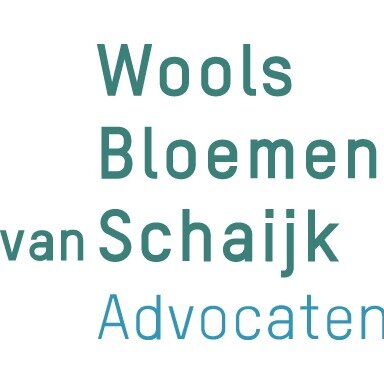Best Inheritance Law Lawyers in Netherlands
Share your needs with us, get contacted by law firms.
Free. Takes 2 min.
Or refine your search by selecting a city:
List of the best lawyers in Netherlands
About Inheritance Law in Netherlands
Inheritance law in the Netherlands is primarily governed by the Civil Code, in particular Boek 4 (Erfrecht). It sets out how assets pass after someone dies, who inherits if there is no will, and how to handle wills and gifts made before death. The framework also covers the rights of spouses and children, the administration of the estate, and the distribution of the deceased's assets.
The Dutch system combines statutory rules with the possibility to shape outcomes through a will or testament. A notarial or civil law notary typically helps create and formalize wills, ensuring they comply with Dutch requirements. In many cases, a professional advisor is essential to navigate complex asset situations, debt settlements, and cross-border aspects.
Key concepts include statutory heirs, the legitieme portie (reserved portion for certain relatives), and the possible use of a usufruct right for a surviving spouse on the family home. The process often involves inventorying assets, paying debts and taxes, and distributing the remaining estate to heirs or legatees.
According to the Dutch government, inheritance rules combine statutory rights with testamentary freedom, while certain shares must be respected by law. Official guidance emphasizes the role of notaries in creating valid estate documents.
For cross-border estates, Dutch courts may apply European rules on jurisdiction and applicable law to determine which country handles probate and which law applies to the inheritance. This is especially important when there are assets in other EU countries. See EU and Dutch government sources for details on cross-border matters.
Why You May Need a Lawyer
-
Scenario 1: A surviving spouse believes the will leaves them insufficiently or no share of the estate. A lawyer can assess whether the surviving partner is entitled to the legal share or a usufruct of the home. This is especially relevant when children from a previous relationship exist.
-
Scenario 2: There are assets in multiple countries. Cross-border inheritance rules can determine which country handles probate and which law applies. A lawyer with cross-border experience can coordinate Dutch and foreign proceedings.
-
Scenario 3: There is a dispute among heirs about asset valuation, inventory, or debt settlement. A solicitor can help with negotiation, mediation, and, if needed, court action to settle the estate fairly.
-
Scenario 4: A will appears to be invalid or forged. A lawyer can advise on challenging a will, verifying its validity, and potentially guiding a probate action in court if necessary.
-
Scenario 5: The estate includes real property, business assets, or complex liabilities. A legal professional can manage inventory, debt settlement, and tax implications to prevent personal liability for heirs.
-
Scenario 6: You need to plan or update a will to reflect changes in assets, guardianship for minor children, or new tax regulations. A lawyer ensures the document remains enforceable and aligned with current law.
Local Laws Overview
The Dutch legal framework for inheritance rests on several core instruments. First, Burgerlijk Wetboek Boek 4 (Erfrecht) governs testamentary freedom, intestate succession, and the rights and duties of heirs. This code is the primary source of Dutch inheritance rules and is regularly updated to reflect social and economic changes. Burgerlijk Wetboek Boek 4 Erfrecht is accessible as official legislation.
Second, Notariswet and the Centraal Testamentenregister regulate the notarial practice and the storage of wills. Notaries are central to creating valid notarial wills and to maintaining records so heirs can locate a will after death. See Notaris.nl for official information on notarial practice and the central register. Notariswet and Centraal Testamentenregister
Third, cross-border inheritance matters are affected by Regulation (EU) 650/2012, which determines jurisdiction and applicable law in cross-border estates. The Netherlands has implemented the Brussels IV framework to handle multi-country probate and recognition of foreign decisions. For more, see the EU legal text. Regulation (EU) No 650/2012
Finally, the tax dimension is addressed by the Belastingdienst as it relates to erfbelasting (inheritance tax). The tax rules apply to transfers from the estate to heirs, with exemptions and rates depending on relationship and total value. Official guidance is available on the Belastingdienst site. Erfbelasting - Belastingdienst
Frequently Asked Questions
What happens if there is no will in the Netherlands?
If there is no will, the estate passes to statutory heirs under intestate succession rules in Boek 4 Erfrecht. The court or executor will determine the distribution according to legal shares and family relationships.
How do I start an inheritance claim after a relative dies?
Contact a Dutch solicitor who specializes in erfrecht to inventory assets, identify heirs, and determine the need for probate. You will typically gather a death certificate, a will if one exists, asset details, and debts.
When should I involve a notary in an inheritance matter?
A notary is usually required to draft or certify a valid testament and to register it in the Centraal Testamentenregister. Notaries also guide the estate administration process.
Where can I learn about the legitieme portie and who qualifies?
The legitieme portie protects specific heirs, such as children, and restricts how much the estate can freely distribute. A lawyer can calculate portions and advise on protection measures.
Why is cross-border inheritance complicated in the Netherlands?
Cross-border estates invoke EU rules on jurisdiction and applicable law. Conflicts of law can affect which country handles probate and how assets are taxed.
Can I contest a will in the Netherlands?
Yes, you can contest a will on grounds such as lack of capacity, fraud, or improper execution. A lawyer can assess validity and represent you in court if needed.
Do I need a lawyer to draft a will or administer an estate?
While not always required, a lawyer or notary reduces risk of errors, ensures legal validity, and can speed up probate and tax compliance.
How much does probate typically cost in the Netherlands?
Costs vary by complexity, assets, and whether you hire a lawyer or notary. Typical fees include notary charges, court costs, and possible expert valuations.
Is a holographic or handwritten will recognized in the Netherlands?
Handwritten or holographic wills are generally not recognized in the Netherlands; a notarial or witnessed will is preferred to ensure validity.
What documents are usually needed to start probate?
Common documents include the death certificate, identifying documents for heirs, list of assets and debts, property deeds, and any existing wills or testamentary instruments.
What is the difference between a will and intestate succession?
A will allows you to designate heirs and specific bequests. Intestate succession follows statutory rules when no will exists.
Additional Resources
- Rijksoverheid: Erfrecht - Official government information about the Dutch rules on inheritance, wills, and intestate succession. Rijksoverheid Erfrecht
- Belastingdienst: Erfbelasting - Guidance on taxes related to inheritance, exemptions, and filing obligations. Belastingdienst Erfbelasting
- Notaris.nl - Information from the Dutch Notaries Association on notaries, notarial wills, and the centaal testamentenregister. Notaris Erfrecht
Next Steps
- Define your goal. Decide if you need to locate a will, contest a will, or administer an estate. Set a realistic timeline for resolution.
- Gather essential documents. Collect death certificates, wills or gifts, asset lists, debts, and identification for all potential heirs.
- Assess whether you need professional help. If assets are complex or cross-border, hire a Dutch inheritance lawyer or notary with relevant experience.
- Research and shortlist suitable specialists. Look for erfenis or erfrecht experts with good references and transparent fee structures.
- Schedule initial consultations. Bring your documents and prepare a list of questions about process, timelines, and costs.
- Obtain a written engagement letter. Confirm scope of work, fees, and estimated timelines before signing.
- Initiate the case and monitor progress. Maintain records of communications, court filings, and tax filings. Check progress every few weeks.
Lawzana helps you find the best lawyers and law firms in Netherlands through a curated and pre-screened list of qualified legal professionals. Our platform offers rankings and detailed profiles of attorneys and law firms, allowing you to compare based on practice areas, including Inheritance Law, experience, and client feedback.
Each profile includes a description of the firm's areas of practice, client reviews, team members and partners, year of establishment, spoken languages, office locations, contact information, social media presence, and any published articles or resources. Most firms on our platform speak English and are experienced in both local and international legal matters.
Get a quote from top-rated law firms in Netherlands — quickly, securely, and without unnecessary hassle.
Disclaimer:
The information provided on this page is for general informational purposes only and does not constitute legal advice. While we strive to ensure the accuracy and relevance of the content, legal information may change over time, and interpretations of the law can vary. You should always consult with a qualified legal professional for advice specific to your situation.
We disclaim all liability for actions taken or not taken based on the content of this page. If you believe any information is incorrect or outdated, please contact us, and we will review and update it where appropriate.
Browse inheritance law law firms by city in Netherlands
Refine your search by selecting a city.
















